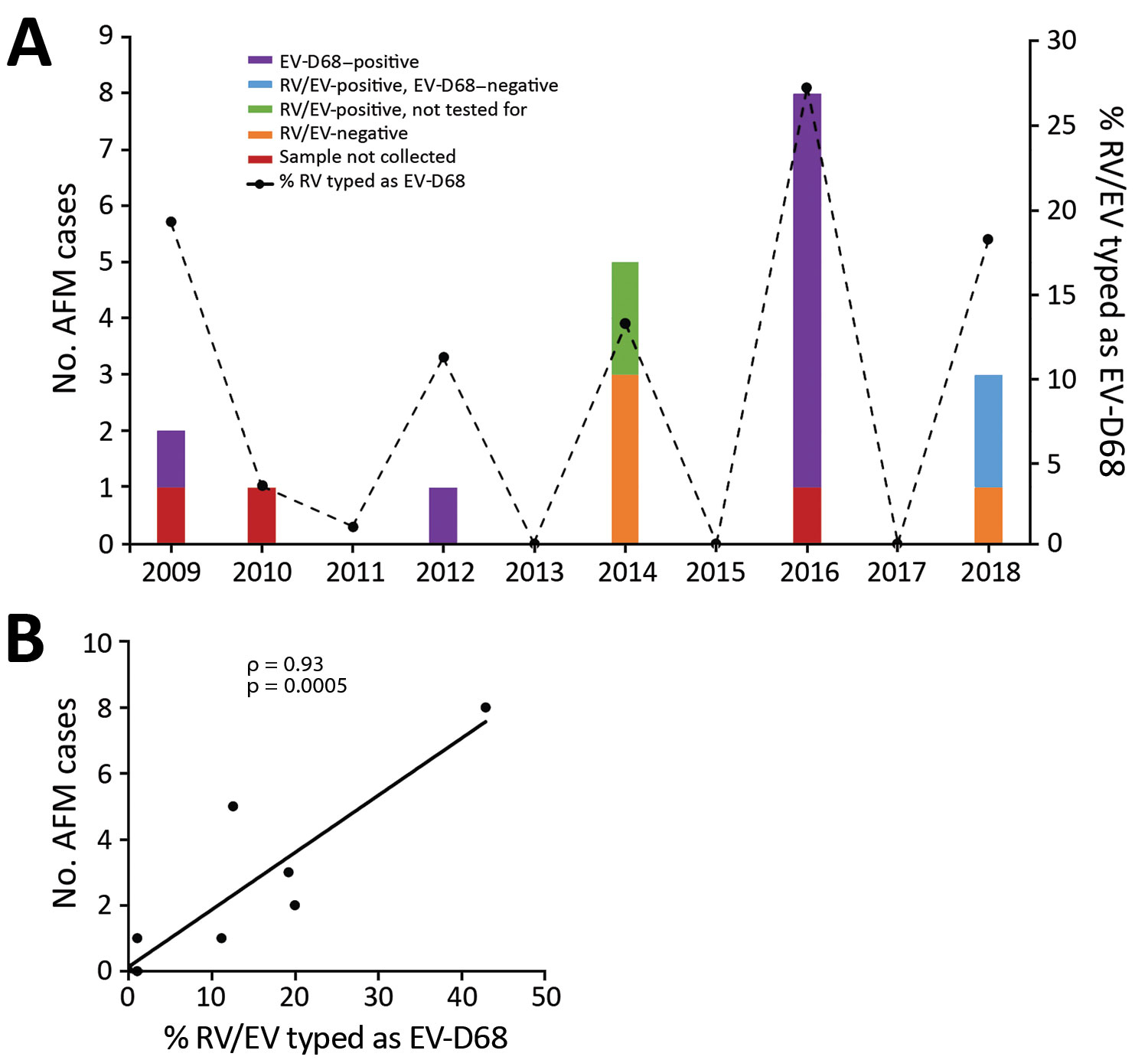Volume 25, Number 9—September 2019
Research
Association of Enterovirus D68 with Acute Flaccid Myelitis, Philadelphia, Pennsylvania, USA, 2009–2018
Figure 1

Figure 1. Association between AFM and EV-D68 prevalence, Philadelphia, Pennsylvania, USA, 2009–2018. A) The percentage of nasopharyngeal aspirate samples positive for RV/EV that typed as EV-D68 by real-time reverse transcription PCR. B) Comparison of confirmed AFM cases with the prevalence of EV-D68 during the same time period using Spearman correlation ρ and linear regression analysis (n = 10). AFM, acute flaccid myelitis; EV-D68, enterovirus D68; RV/EV, rhinovirus/enterovirus.
Page created: August 21, 2019
Page updated: August 21, 2019
Page reviewed: August 21, 2019
The conclusions, findings, and opinions expressed by authors contributing to this journal do not necessarily reflect the official position of the U.S. Department of Health and Human Services, the Public Health Service, the Centers for Disease Control and Prevention, or the authors' affiliated institutions. Use of trade names is for identification only and does not imply endorsement by any of the groups named above.